Editorials
Remembering ‘Jack Frost’: The Film that Accidentally Traumatized Me as a 90’s Kid

In 1997, Moonstone Entertainment released the horror film Jack Frost, straight to VHS. This horror comedy follows the story of an escaped serial killer who underwent a horrific mutation that turned him into a killer snowman. Michael Cooney directed the flick, the same Michael Cooney who would later write the screenplay for the mystery thriller Identity.
With a whopping 6% critic score on Rotten Tomatoes, it’s safe to say that this film was not a critical darling. Despite this, twenty-five years later, I never forgot this film and its impact on my childhood.
How Jack Frost Traumatized My Childhood
Let’s rewind to the time when finding out what was on television came from looking inside the pages of the TV Guide or tuning in to the dreaded TV Guide channel where every title would slowly scroll by. God help anyone who briefly looked away for the moment the thing they were looking for appeared on the screen, or else they had to sit and rewatch the entire scroll again.
Back in those days especially, it was possible to tune into a channel without knowing what was already on it. It’s a thought that is obvious to everyone who lived through it and is wholly unthinkable to anyone who didn’t live in the times before streaming, digital cable, or even Google existed.
I’d be lying if I said I could remember exactly which of these circumstances was to blame for the story I’m about to tell, though I suppose those details don’t so much matter. The point is how easily something like this could occur then.
90s Gateway Horror: My Love-Hate Relationship with Gore
To properly put this story into context, it is essential to know a little about me. Horror has been in my heart for as long as I can remember, with gateway horror films such as Edward Scissorhands, Little Monsters, Beetlejuice, and Casper being childhood favorites I watched on repeat.
Moreover, it wasn’t uncommon to find me transfixed by a children’s horror book like Bruce Coville’s Book of Nightmares, Vivian Vande Velde’s Never Trust a Deadman, Alvin Schwartz’s In a Dark, Dark Room (which contains the infamous “Girl with the Green Ribbon”). Despite all of this, little Tiffany could not handle gore.
Oh my, how times have changed.
But back then, the slightest hint of blood left me terrified. To give one critical example, I distinctly remember the carnival ride scene from Child’s Play 3 that left 6-year-old me running and crying from the room.
Now that the stage is appropriately set, to the main act.
Jack Frost the Killer Snowman: A Shocking Mix-Up
The movie was well underway when I changed the television to the channel airing the horror-comedy Jack Frost. A boy was standing outside before a snowman; clearly, this must be the little boy standing with his father in the beloved family film. I wasn’t immediately put off by the different appearance of the snowman. I had seen the family film starring Michael Keaton only once or twice before, and sure he looked different, but I attributed that to not having an accurate mental depiction of the film.
Then murder happened, and I realized my mistake far too late.
If you aren’t familiar with the family film of the same name, then you aren’t familiar with the scene where the father, in his snowman form, helps his son fend off bullies who are chasing the father-son duo on sleds.

The Sled Scene That Scarred Me
As fate would have it, the day I tuned to the channel with the snowman Jack Frost emblazoned on the screen, a child was tending to a snowman, and a troop of bullies descended on the scene with sleds in hand. I anxiously awaited the cheer-inducing father-son moment that was undoubtedly imminent.
Picture my surprise when one of the bullies was immediately beheaded, via a sled, with his blood quickly soaking the snow beneath him.
In hindsight, the blood was minimal, especially compared to the vivid detail in all modern-day slashers. But to the girl who had to close her eyes at the end of Ferngully because the smoke monster Hexxus had black roots erupting from his oily skeletal form, it was more than enough to make a lasting impact.

A Lingering Fear of Snowmen
I never forgot the mistake I made. Every year that the Nestea snowman appeared in TV commercials, I was reminded of my accidental brush with horror since, in my mind, the two snowmen were interchangeable.
Even as I grew into the horror-loving, desensitized, “give me all the gore” gal that I am today, that silly childhood experience always held me back from revisiting the film in its entirety. As a teenager, when I browsed the aisles of Blockbuster for whichever film promised to scare me most (Vampire Clan, May, and Cabin Fever were my Blockbuster go-to’s of those days), I still went out of my way to avoid that sinister snowman.
Facing My Childhood Monster: Revisiting Jack Frost
It is only now, at the age of thirty, for this article (and to give you, dear horror fan, an honest conclusion to the 20+ year nightmare) that I have finally decided to face the monster that lurked in little me’s subconscious during every snowstorm throughout childhood.
Like many people who grow up to finally look their childhood fear in the face, I am happy to declare a giant “LOL” to Jack Frost.
The story is intriguing though it seems to exist as only a vehicle for holiday and other snow-related kill scenes. The kill scenes tend to imply much of the gore and depravity rather than show it. Additionally, silly one-liners from the killer snowman, or as he refers to himself: “The world’s most pissed off snow cone,” make up a large portion of the dialogue. The most unsettling part of the entire film comes from the introduction, as a sinister uncle tells the history of the killer, Jack Frost, to his niece, despite her pleas for him to stop. Something about those voices gives me the ick and shivers.
Childhood Monsters Lose Their Power
Aside from the intro, the moral of the story is that monsters are often less terrifying in the light. Though I can’t help but wonder if my same account will be experienced by the upcoming generation as they search for the Disney hit, they find themselves watching a clip from the horror film Frozen (2010) instead.
If ski slopes get canceled in the next thirty years, I think we know what is to blame.
Experience the snowman for yourself, and stream Jack Frost on Tubi today. Take care that you’ve selected the right one, or you may find yourself sitting through the family flick instead.
Editorials
The 10 Most Satisfying Deaths in Horror Movies

Horror Press’ exploration of catharsis this month lends itself naturally to the topic of satisfying horror movie deaths. While murdering people who vex you in real life is rightly frowned upon, horror allows us to explore our darker sides. Fiction gives us the catharsis and relief to allow us to survive that ineradicable pox that is other people. To that end, here are the 10 most satisfying deaths in horror movies.
PS: It goes without saying that this article contains a few SPOILERS.
The 10 Most Satisfying Deaths in Horror Movies
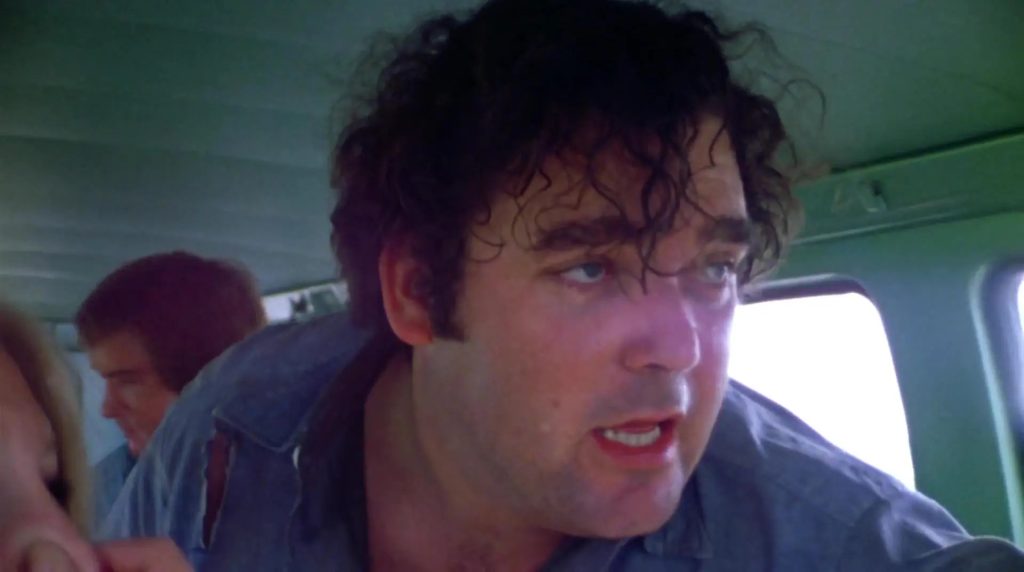
#10 Franklin, The Texas Chain Saw Massacre
I ranked this death from the original Texas Chain Saw Massacre lowest for two reasons. First, I think Franklin’s whole vibe is a perfect fit for the unnerving, overwhelming atmosphere of Tobe Hooper’s masterpiece. Second, I think it’s important for representation that onscreen characters from marginalized groups be allowed to have flaws. That said, Franklin Hardesty is one of the most goddamn annoying characters in the history of cinema. Endless shrieking and raspberry-blowing will do that for ya. His death via chainsaw comes as a profound relief. His sister Sally spends the next 40 minutes or so screaming nonstop, and that’s considerably more peaceful.

#9 Lori, Happy Death Day
This is less about the character herself and more about Tree’s journey. After watching her time-loop for so long, being thwarted at every turn, Lori’s poison cupcake is a real gut-punch. Tree’s vengeance allows her to break out of the time loop once and for all (until the sequel). It also allows us to rejoice in the fact that her work to improve herself hasn’t been for naught.
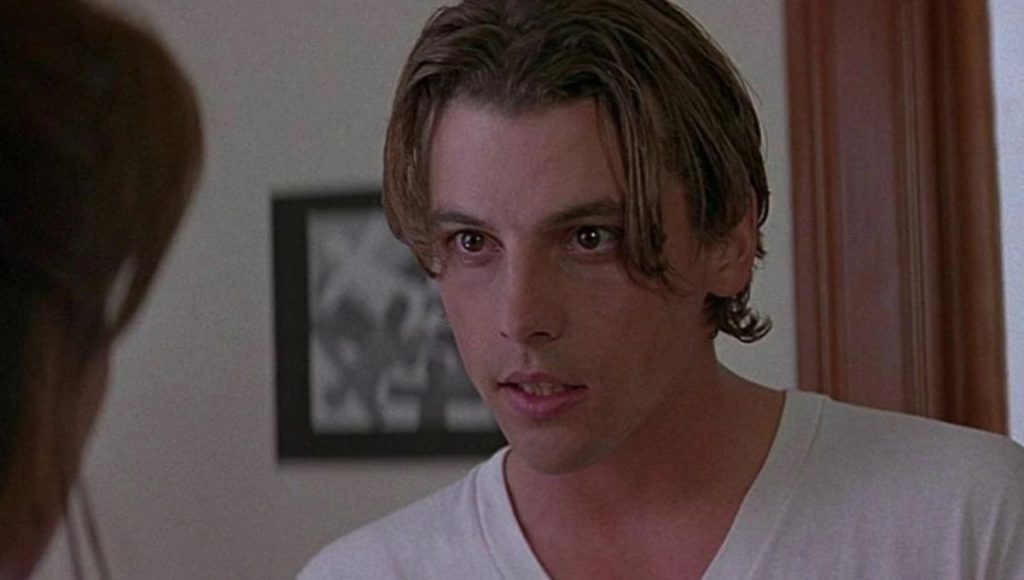
#8 Billy, Scream (1996)
There are a hell of a lot of satisfying kills perpetrated upon Ghostfaces in the Scream franchise. However, the original still takes the cake. Sidney Prescott curtly refuses to allow a killer to plug a sequel at the end of her survival story. Instead, she plugs him in the head, saying, “Not in my movie.” It’s not just a great ending to a horror movie. It’s a big middle finger to sleazy teenage boyfriends the world over.

#7 Crispian, You’re Next
Ooh, when Erin finds out that this rotten man has knowingly brought her along to a home invasion… His attempt to charm (and bribe) her might have won over a weaker person. But in addition to putting her in danger, he has willingly had his family slaughtered for money. Erin won’t stand for that, and her takedown of yet another Toxic Horror Boyfriend is cause for celebration.
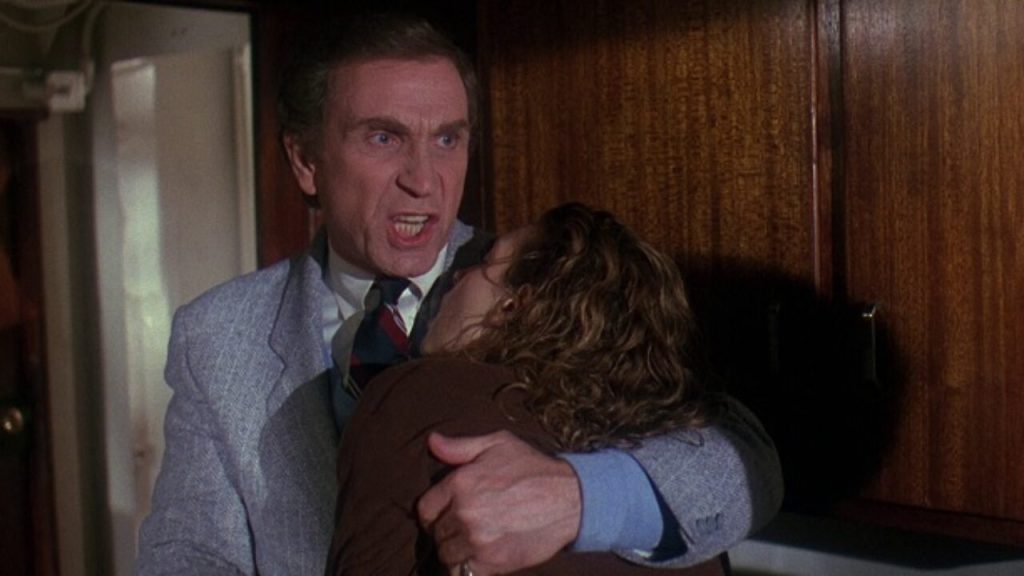
#6 Charles, Friday the 13th Part VIII: Jason Takes Manhattan
Charles McCulloch might be one of the nastiest characters in film history. While school administrators are hardly any student’s best friend, his cold cruelty is downright abnormal. How he manages to be simultaneously overbearing and wicked to his niece, Rennie, I’ll never know. But thankfully, Jason Voorhees drowns him in a vat of toxic waste, removing the need to solve that mystery. Not all heroes wear capes. Sometimes they wear hockey masks.
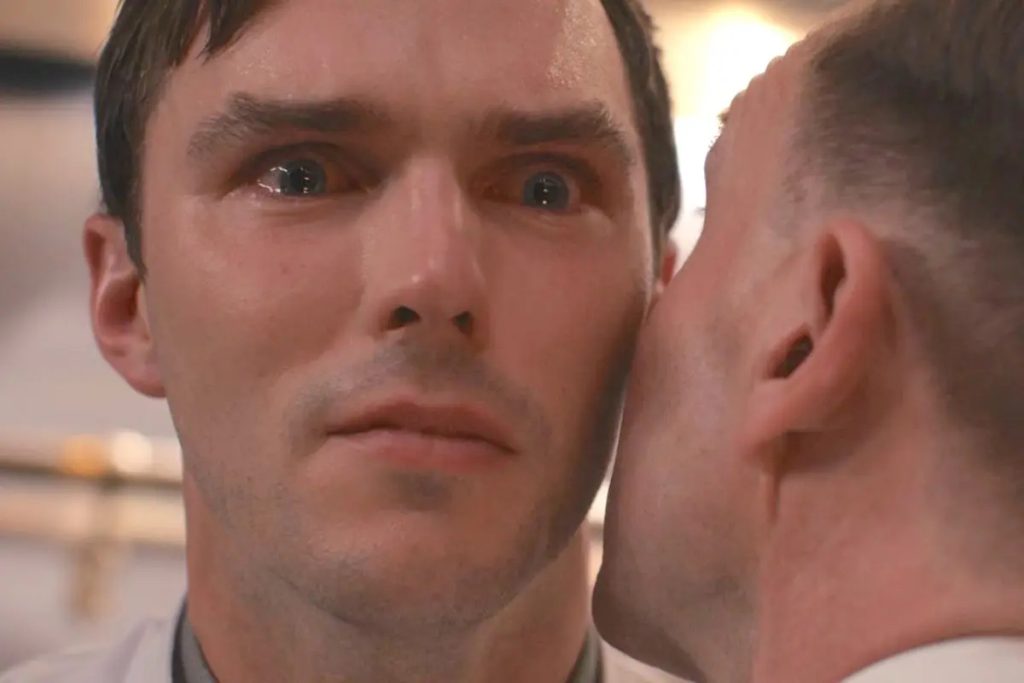
#5 Tyler, The Menu
Up next on the tasting tray of cinema’s worst boyfriends, we have Tyler. He’s not technically Margot’s boyfriend, because she’s an escort he invited to a fancy dinner. But he should still land in the hall of fame. That’s because he brought her despite knowing ahead of time that nobody was meant to leave the restaurant alive. Thankfully, he gets one of the best Bad Boyfriend deaths of them all. He dies at his own hands. By hanging. After being thoroughly humiliated with proof that all the mansplaining in the world can’t make someone a good chef. Delectable.
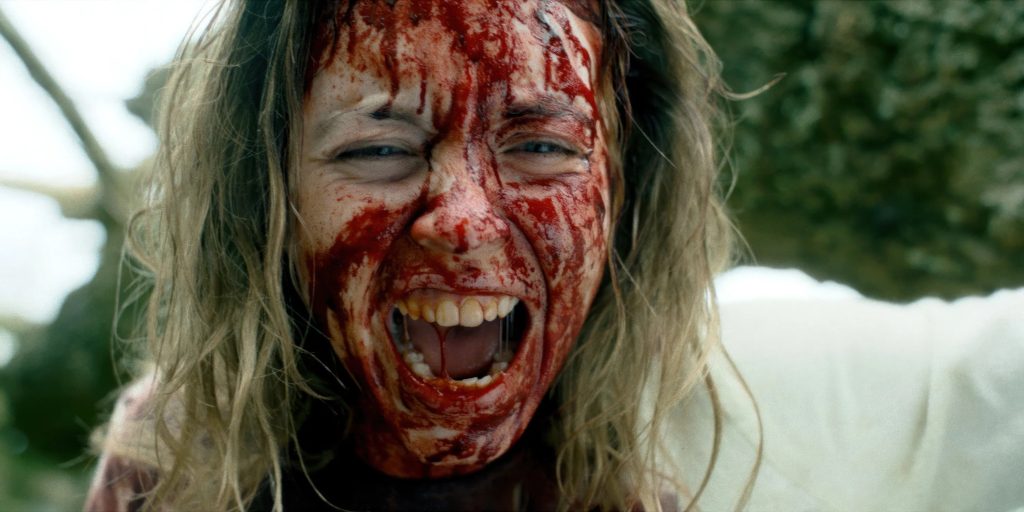
#4 The Baby, Immaculate
You may remember this kill from my Top 10 Child Deaths article. The ending of Immaculate is (there’s no other word for it) immaculate. Shortly after Sister Cecilia learns that she has been unwillingly impregnated with the son of Christ, she gives birth. Instead of letting the church manipulate her further after violating her body, she smashes that godforsaken thing with a rock. In the process, she sheds years of ingrained doctrine and sets herself free once and for all. This is the ending that Antichrist movies have historically been too cowardly to give us. The fact that this character is a potential messiah makes it that much more cathartic.
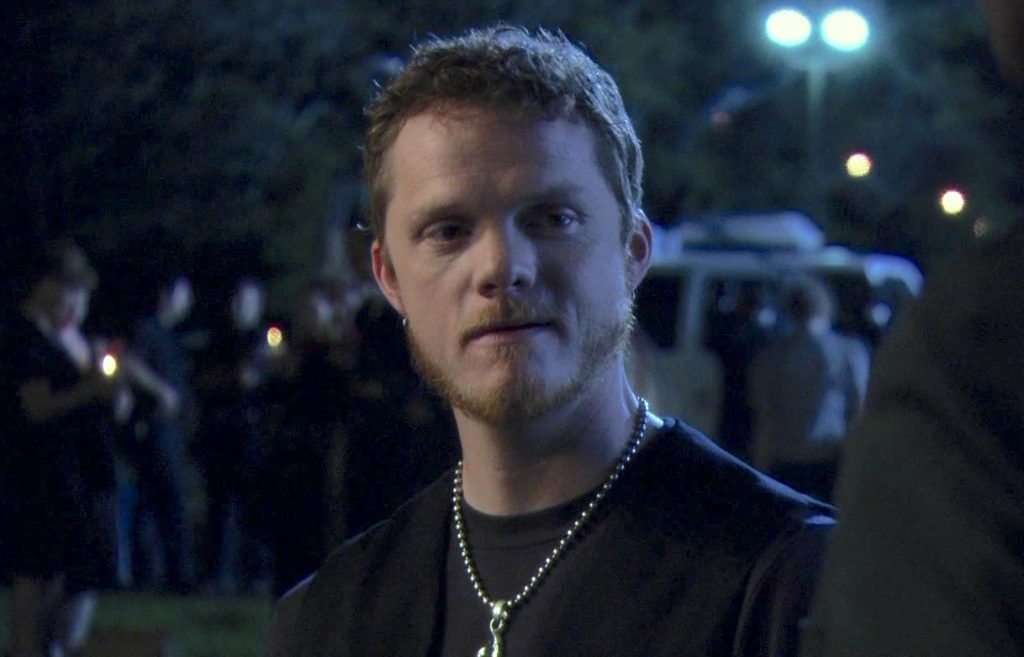
#3 Carter, The Final Destination
I mean, come on. This guy is literally credited as “Racist” at the end of the movie. Pretty much every Final Destination movie has an asshole character who you crave to see die. But this epithet-spewing, cross-burning bigot is by far the worst of the bunch.
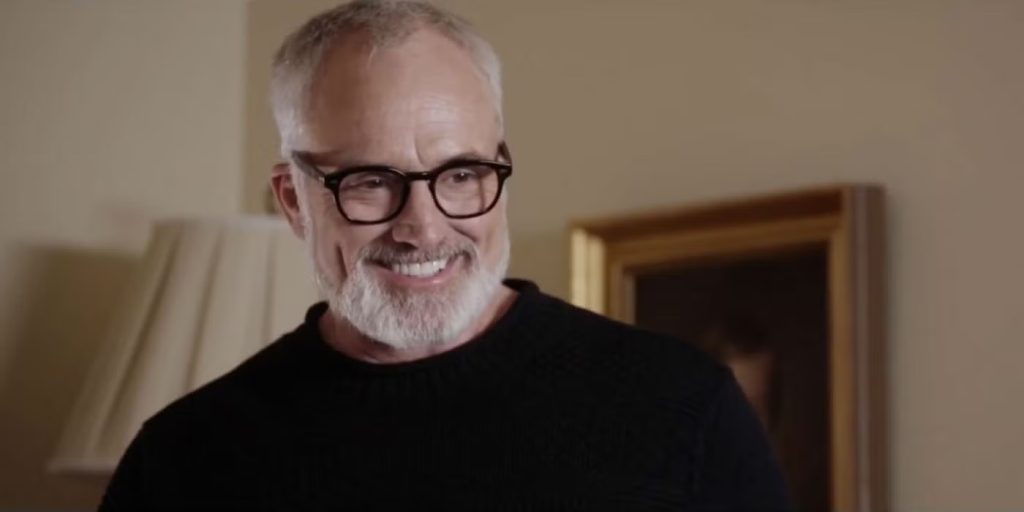
#2 Dean, Get Out
Racism comes in many forms, as Jordan Peele’s Get Out highlights. The Armitage family’s microaggressions quickly become macroaggressions, more than justifying Chris’ revenge slayings. While this whole portion of the movie is immensely satisfying, Dean’s death might just be the most cathartic. This is because he is killed via the antlers of a stuffed deer head. Chris uses the family’s penchant for laying claim to their prey’s bodies against them with this perfectly violent metaphor.

#1 Adrian, The Invisible Man (2020)
Here we have the final boss of Toxic Horror Boyfriends. This man is so heinously abusive that he fakes his own death in order to torment his ex even more. Cee using his own invisibility suit against him to stage his death by suicide is perfectly fitting revenge.
Editorials
‘Ready or Not’ and the Cathartic Cigarette of a Relatable Final Girl
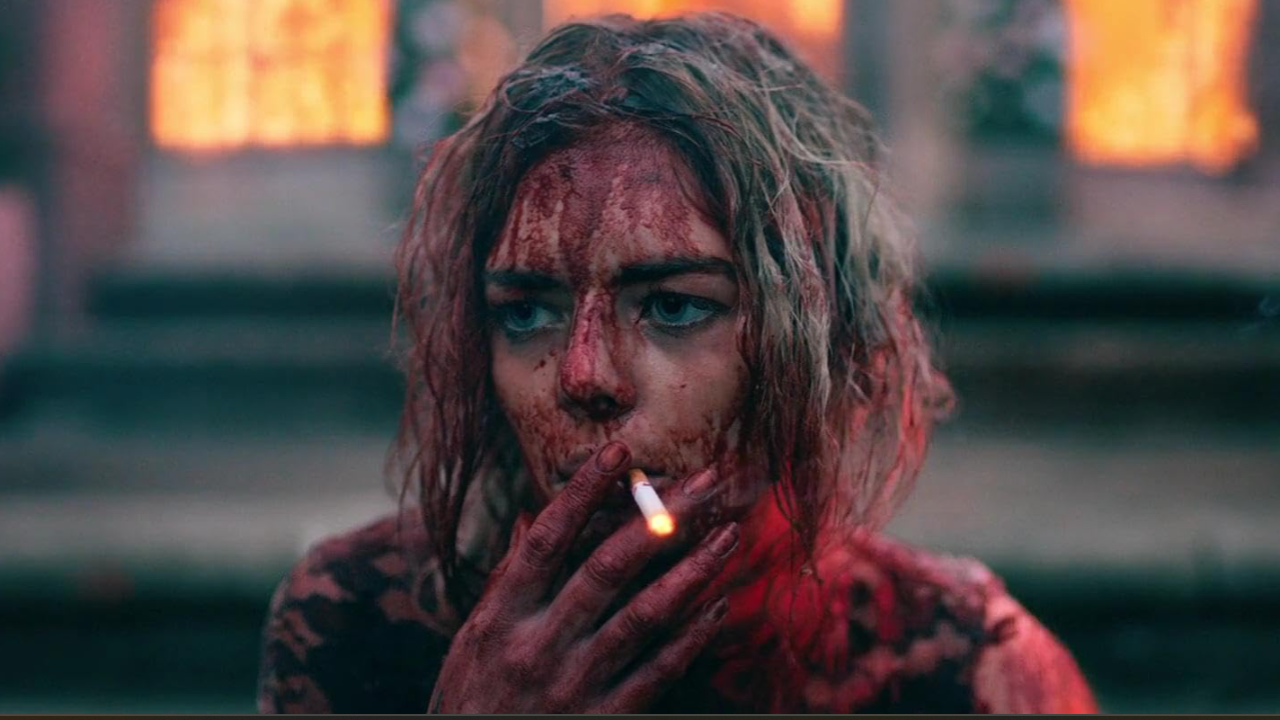
I was late to the Radio Silence party. However, I do not let that stop me from being one of the loudest people at the function now. I randomly decided to see Ready or Not in theaters one afternoon in 2019 and walked out a better person for it. The movie introduced me to the work of a team that would become some of my favorite current filmmakers. It also confirmed that getting married is the worst thing one can do. That felt very validating as someone who doesn’t buy into the needing to be married to be complete narrative.
Ready or Not is about a fucked up family with a fucked up tradition. The unassuming Grace (Samara Weaving) thinks her new in-laws are a bit weird. However, she’s blinded by love on her wedding day. She would never suspect that her groom, Alex (Mark O’Brien), would lead her into a deadly wedding night. So, she heads downstairs to play a game with the family, not knowing that they will be hunting her this evening. This is one of the many ways I am different from Grace. I watch enough of the news to know the husband should be the prime suspect, and I have been around long enough to know men are the worst. I also have a commitment phobia, so the idea of walking down the aisle gives me anxiety.

Grace Under Fire
Ready or Not is a horror comedy set on a wealthy family’s estate that got overshadowed by Knives Out. I have gone on record multiple times saying it’s the better movie. Sadly, because it has fewer actors who are household names, people are not ready to have that conversation. However, I’m taking up space this month to talk about catharsis, so let me get back on track. One of the many ways this movie is better than the latter is because of that sweet catharsis awaiting us at the end.
This movie puts Grace through it and then some. Weaving easily makes her one of the easiest final girls to root for over a decade too. From finding out the man she loves has betrayed her, to having to fight off the in-laws trying to kill her, as she is suddenly forced to fight to survive her wedding night. No one can say that Grace doesn’t earn that cigarette at the end of the film. As she sits on the stairs covered in the blood of what was supposed to be her new family, she is a relatable icon. As the unseen cop asks what happened to her, she simply says, “In-laws.” It’s a quick laugh before the credits roll, and “Love Me Tender” by Stereo Jane makes us dance and giggle in our seats.
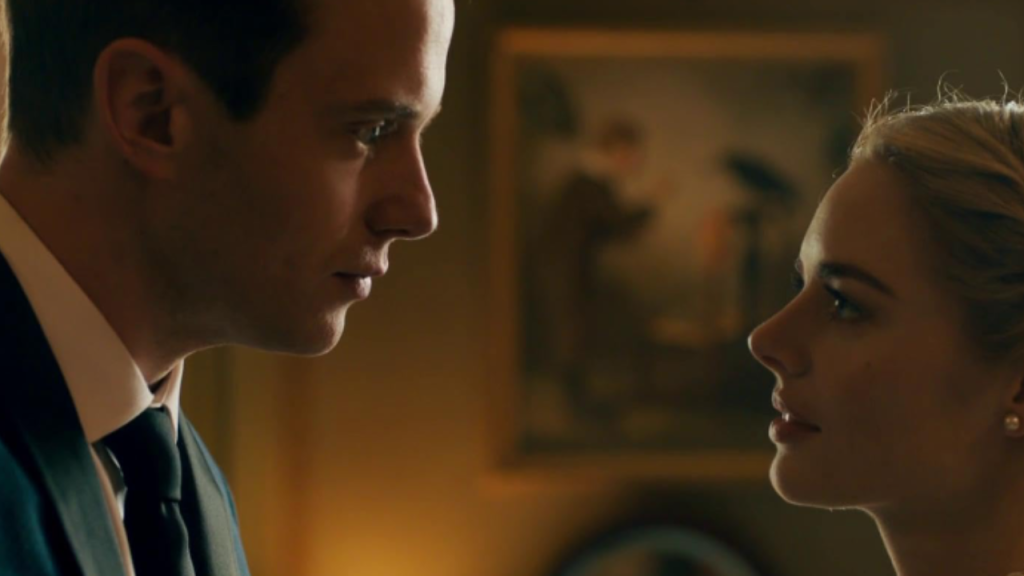
Ready or Not Proves That Maybe She’s Better Off Alone
It is also a moment in which Grace is one of many women who survives marriage. She comes out of the other side beaten but not broken. Grace finally put herself, and her needs first, and can breathe again in a way she hasn’t since saying I do. She fought kids, her parents-in-law, and even her husband to escape with her life. She refused to be a victim, and with that cigarette, she is finally free and safe. Grace is back to being single, and that’s clearly for the best.
This Guy Busick and R. Christopher Murphy script is funny on the surface, even before you start digging into the subtext. The fact that Ready or Not is a movie where the happy ending is a woman being left alone is not wasted on me, though. While Grace thought being married would make her happy, she now has physical and emotional wounds to remind her that it’s okay to be alone.
One of the things I love about this current era of Radio Silence films is that the women in these projects are not the perfect victims. Whether it’s Ready or Not, Abigail, or Scream (2022), or Scream VI, the girls are fighting. They want to live, they are smart and resourceful, and they know that no one is coming to help them. That’s why I get excited whenever I see Matt Bettinelli-Olpin and Tyler Gillett’s names appear next to a Guy Busick co-written script. Those three have cracked the code to give us women protagonists that are badasses, and often more dangerous than their would-be killers when push comes to shove.

Ready or Not Proves That Commitment is Scarier Than Death
So, watching Grace run around this creepy family’s estate in her wedding dress is a vision. It’s also very much the opposite of what we expect when we see a bride. Wedding days are supposed to be champagne, friends, family, and trying to buy into the societal notion that being married is what we’re supposed to aspire to as AFABs. They start programming us pretty early that we have to learn to cook to feed future husbands and children.
The traditions of being given away by our fathers, and taking our husbands’ last name, are outdated patriarchal nonsense. Let’s not even get started on how some guys still ask for a woman’s father’s permission to propose. These practices tell us that we are not real people so much as pawns men pass off to each other. These are things that cause me to hyperventilate a little when people try to talk to me about settling down.
Marriage Ain’t For Everybody
I have a lot of beef with marriage propaganda. That’s why Ready or Not speaks to me on a bunch of levels that I find surprising and fresh. Most movies would have forced Grace and Alex to make up at the end to continue selling the idea that heterosexual romance is always the answer. Even in horror, the concept that “love will save the day” is shoved at us (glares at The Conjuring Universe). So, it’s cool to see a movie that understands women can be enough on their own. We don’t need a man to complete us, and most of the time, men do lead to more problems. While I am no longer a part-time smoker, I find myself inhaling and exhaling as Grace takes that puff at the end of the film. As a woman who loves being alone, it’s awesome to be seen this way.

The Cigarette of Singledom
We don’t need movies to validate our life choices. However, it’s nice to be acknowledged every so often. If for no other reason than to break up the routine. I’m so tired of seeing movies that feel like a guy and a girl making it work, no matter the odds, is admirable. Sometimes people are better when they separate, and sometimes divorce saves lives. So, I salute Grace and her cathartic cigarette at the end of her bloody ordeal.
I cannot wait to see what single shenanigans she gets into in Ready or Not 2: Here I Come. I personally hope she inherited that money from the dead in-laws who tried her. She deserves to live her best single girl life on a beach somewhere. Grace’s marriage was a short one, but she learned a lot. She survived it, came out the other side stronger, richer, and knowing that marriage isn’t for everybody.























